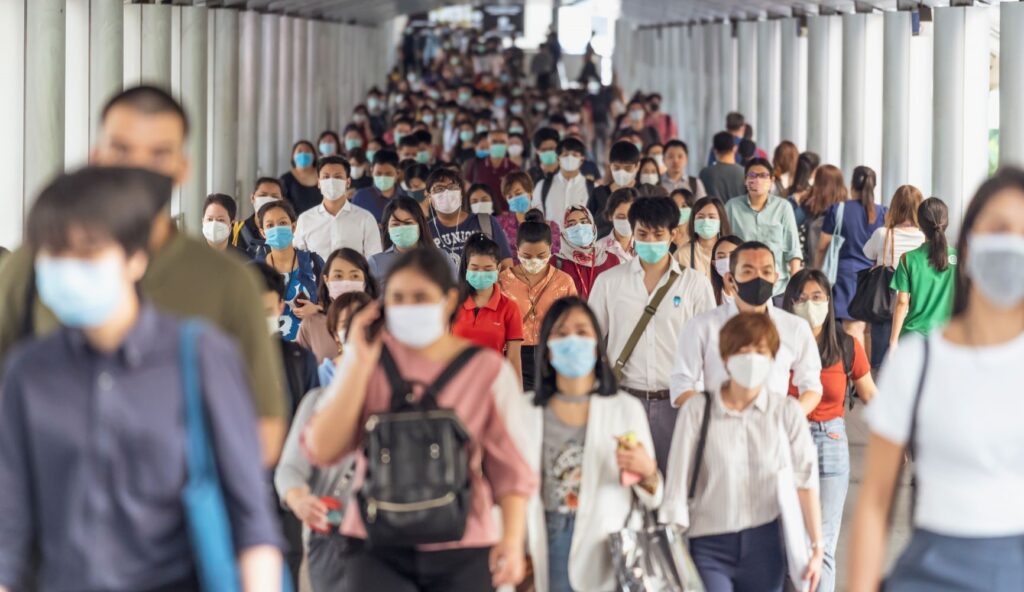
Imagine a typical response this Saturday to being told it’s World Mental Health Day,
“Oh, that’s good.”
Or perhaps, best case scenario, the follow-up question,
“And what does that mean?”
To which the average informant might reply,
“Well… it’s a day to be aware of mental health…”
This is a far too familiar dialogue that we’ve all encountered when being told that it is ‘X Day’ or ‘Y Month’. A brief discussion is achieved at best, perhaps sparked by an email that looks like it should have gone to spam, which is then swiftly deleted, along with any recollection of the event by the next day.
In spite of this (maybe slightly pessimistic) view of people’s reaction World Mental Health Day, there has in fact been no more pressing time than now to think critically about why this day exists, what it seeks to achieve and how.
World Mental Health Day began in the early 90s as an initiative described by the World Health Organisation that has ‘the overall objective of raising awareness of mental health issues around the world and mobilizing efforts in support of mental health.’1 Fantastically vague and completely unhelpful.
The reality is that an explanation as to why we need to be aware of mental health issues is easy to find when you look at the statistics. One in four adults and one in 10 children experience mental illness in their lives.2 Mixed anxiety and depression are the most common mental disorders in Britain, with 7.8% of people meeting the criteria for diagnosis.3 For those who are a suspicious of the over-medicalisation of behaviours that may have in the past simply been seen as traits of our personality, then think again how anxiety and depression alone have been estimated to cause one fifth of days lost from work in Britain.4 Medically diagnosed or otherwise, it is absolutely certain that across the nation mental health is poor and witnessing damaging results.
And so it becomes easy to justify the existence of a plan for change, but how exactly does World Mental Health Day seek to achieve this?
Awareness campaigns naturally begin with social media. Regrettably, this is where many campaigns also end. Tweets, Instagram posts and even blogs quickly become empty posturing to build an image that masks chronic underlying apathy. It’s worth noting that these broadcasts can come from individuals, businesses and governments alike.
Thankfully this year’s World Mental Health Day campaign is different and seeks to be the most ambitious yet. By using media presences as vessels to bring about change, as opposed to change in of itself, this World Mental Health Day highlights an opportunity to kick-start a massive scale-up in investment in mental health. This means demanding investment in mental health programmes at a national and international level. Acknowledging that chronic underfunding of health services globally and the COVID-19 pandemic have resulted in extraordinary burdens placed on healthcare and most crucially ourselves.
On a government and policy level World Mental Health Day is an opportunity to challenge decision makers and present them with realities, for example that for every US$ 1 invested in scaled-up treatment for common mental disorders such as depression and anxiety, there is a return of US$ 5 in improved health and productivity.5 ‘Good business’ will also need to shift to become synonymous with a business that takes active and genuine responsibility for the mental health of its employees. This means fewer impersonal group emails on ‘Mental Health Awareness’ and more one-to-one interactions between colleagues.
Although substantial societal change can only be achieved in the long-term, World Mental Health Day also highlights the importance of the immediate positive change individuals are capable of. Never before have we been more able to keep digitally connected during times of physical isolation. What can therefore make a difference is ensuring that our connections are meaningful and supportive. Acting conscientiously to help others, whilst knowing ourselves when we need to reach out.
2020 World Mental Health Day is Saturday October 10th. To find out more from the World Health Organisation then look here.
We serve clients who want support from public relations professionals who can assist them with their communication programmes. Our work includes PR strategy, media liaison, writing, marketing, brochure and web design.
Our clients want support from people who will be proactive in their approach and who have their clients’ interests at the heart of what they do.
Although based in Surrey, we serve clients from around globe looking for a positive impact to their communication activity.